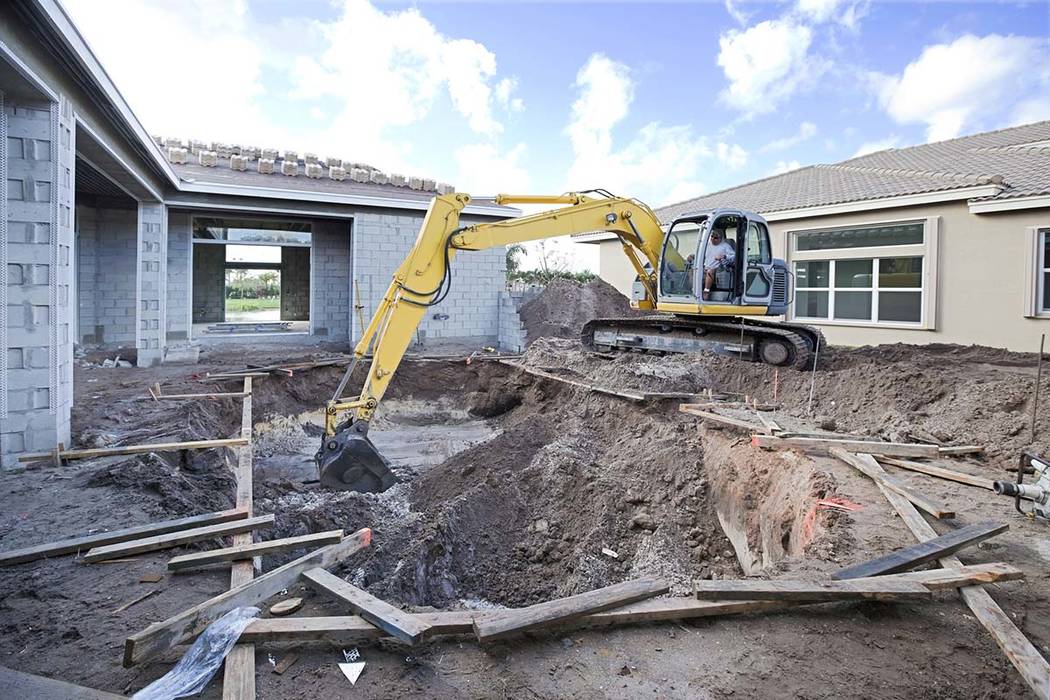Nevada law falls short on Native American burial sites
CARSON CITY — Digging up an ancient Native American burial site in your backyard is just fine in Nevada as long as you’re doing it to build a swimming pool.
That’s according to an opinion issued by the state attorney general’s office in November. State law requires that anyone who wants to conduct an archaeological dig of a known Native American burial site needs to get a permit issued by the director of the Nevada State Museum. The law carves out several exemptions, such as construction, mining, logging or ranching on private land.
According to the opinion, as long as the pool isn’t a cover-up for an archaeological dig, then no permit would be required.
Myron Freedman, director of the Nevada State Museum, said the question he posed to the attorney general’s office was purely hypothetical and was intended to clarify whether those exemptions also extend to minor projects by private homeowners, such as building a swimming pool.
Consulting with tribes
But for some tribes, the opinion shows holes that remain in state laws that are supposed to protect those ancient sites.
“I think really the opinion points out that there is still more work to be done so that Native American human remains, funerary objects and cultural resources are truly protected here in the state of Nevada,” said Michon Eben of the Reno-Sparks Indian Colony’s Tribal Historic Preservation Office.
The worry, Eben said, is that were the hypothetical situation presented by the museum director to come to fruition, there would be no requirement to consult with local tribes.
And too often across the U.S., sites are dug up, studied and in some cases moved to new burial grounds when they should be treated like any other cemetery, Eben added.
“Americans, we are ready to fight and to protect historic cemeteries like pioneer cemeteries. But when Native Americans were buried in traditional society in a traditional way, those are cemeteries as well,” Eben said. “It’s really hurtful to us if we have to excavate and rebury our ancestors. Our ancestors who were buried 1,000 years ago or 5,000 years ago, that should be their final resting place.”
State law updated
In 1989, the Legislature passed the Native American Burial Act, which laid out what private landowners must do if they find Native American human remains during construction or other projects. That law was updated in 2017 to add the permit requirements for projects on sites that are known to the state as ancient Native American burial grounds.
The intent behind the 2017 update was to extend the protections that exist on federal lands, which make up 85 percent of Nevada, to similar situations on private lands, said state Sen. Julia Ratti, D-Sparks, the bill’s lead sponsor.
“When indigenous human remains or burial artifacts are discovered, regardless of location, tribes should be consulted,” Ratti said, adding that she is willing to look at the issue again in 2021.
Native Americans have lived in what is now Nevada for more than 14,000 years, according to archaeological records. But discoveries of Native American human remains in the state are still a bit of a rarity, Freedman said.
Rare finds
“Compared to neighboring California, very few human remains have been found in any of Nevada’s archaeological sites, and very few of these sites could be classified as a cemetery or burial ground site,” Freedman said. “Nevada’s urban areas rarely contain prehistoric Native American burials. That does not mean, however, that none has been discovered, just that it’s rare.”
Freedman said he has issued just one permit since the new law went into effect. It went to an archaeologist who conducted “minor excavations” on a 1,000- to 2,000-year-old Native American burial site on undeveloped private property in the Nevada desert that was discovered roughly 70 years ago, Freedman said.
Despite the relative rarity of Native American remains found in Nevada, Eben said she just wants to ensure that tribes have a seat at the table when discussions about such sites crop up.
“I see all of the construction going on, the development, and I just want to make sure that we are here to protect and manage appropriately and preserve our culture,” Eben said. “Not everything needs to be taken out and studied.”
Contact Capital Bureau Chief Colton Lochhead at clochhead@reviewjournal.com or 775-461-3820. Follow @ColtonLochhead on Twitter.























